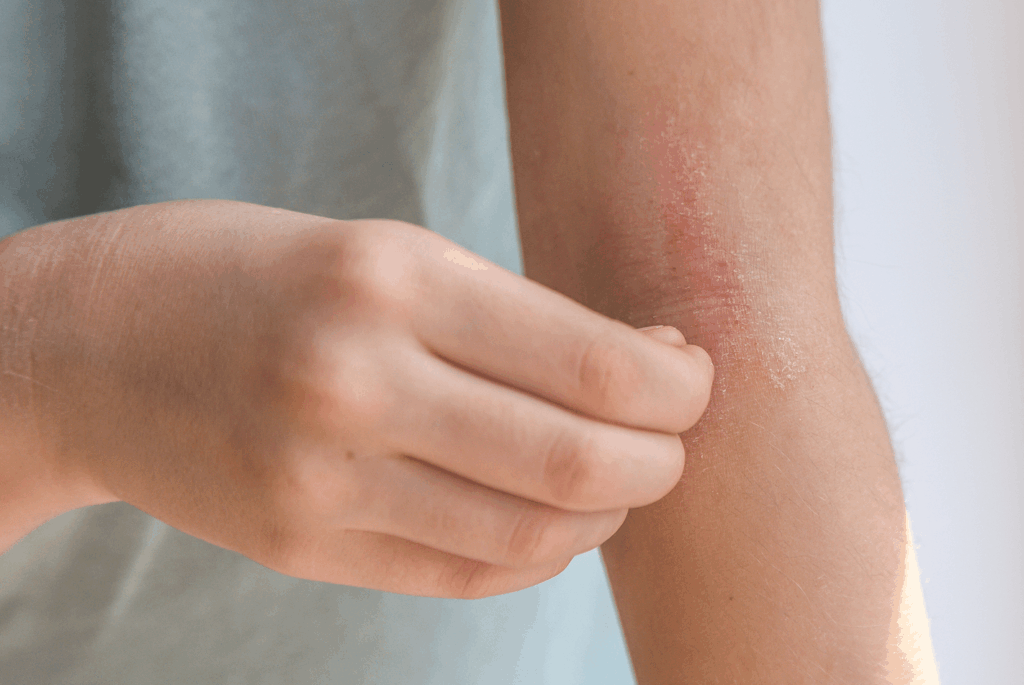Learn more about other conditions we treat

Atopic Dermatitis (Eczema)
A chronic inflammatory skin condition that causes red, dry, and itchy skin due to a weakened skin barrier and an overactive immune response. Treatment can help soothe the skin, reduce inflammation, and restore the skin’s natural barrier.

Hidradenitis Suppurativa
A chronic skin condition that causes painful, inflamed bumps—often in areas where skin rubs together—due to blocked hair follicles and an overactive immune response. Treatment can help reduce inflammation, manage flare-ups, and promote healing of the skin.



